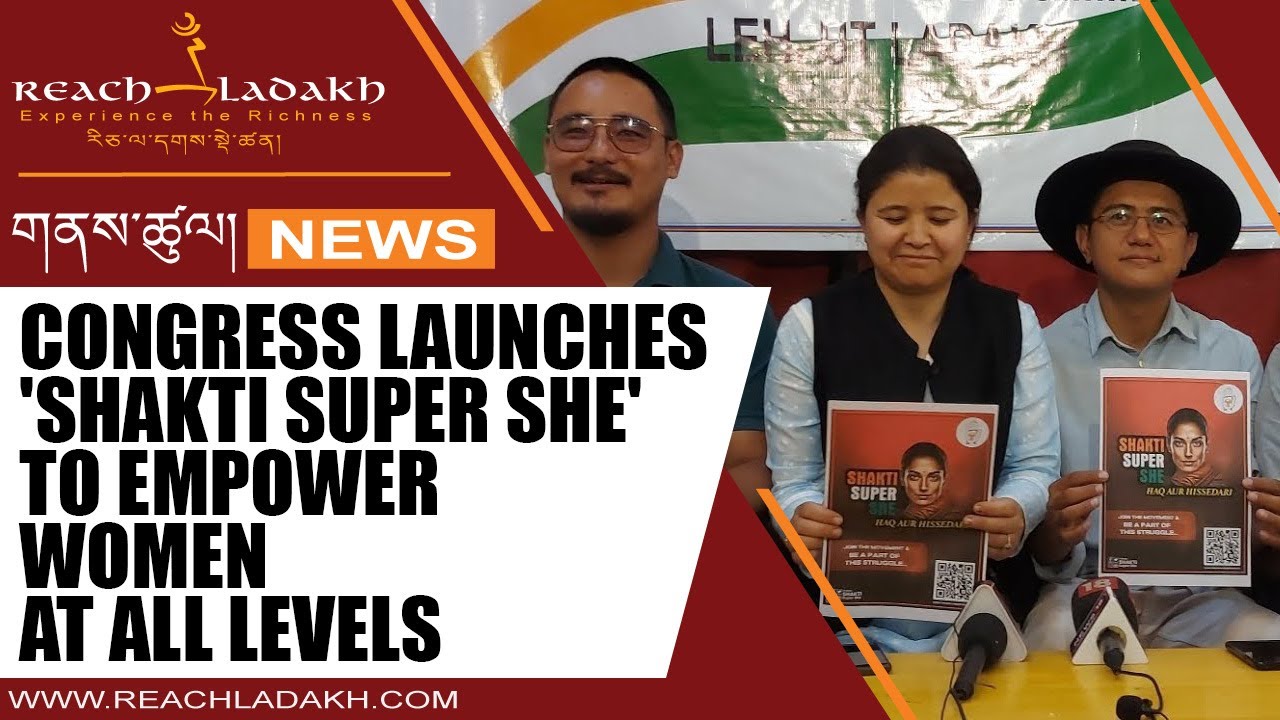


The Congress party in Maharashtra has launched 'Shakti Abhiyan', a campaign to empower women across the state. State president Nana Patole highlighted the positive response received by the Indira Gandhi Fellowship programme, under which the campaign was started a year ago. The campaign will be conducted at various levels and aims to bring women's leadership to the forefront. Patole also criticized the Modi government for not implementing the women's reservation bill, while assuring that the Congress will do so when in power.
Women Empowerment: Maharashtra's 'Shakti Abhiyan' and Beyond
Women empowerment has been a persistent issue in India, with significant efforts being made at the state and national levels to address it. One such initiative is the 'Shakti Abhiyan' campaign launched by the Congress party in Maharashtra.
Background
Historically, women in India have faced various forms of discrimination and marginalization. This has limited their access to education, employment, healthcare, and political participation. In response, the Indian government has implemented several policies and programs aimed at empowering women.
One of the most significant milestones was the establishment of the Ministry of Women and Child Development in 2006. Its mandate includes promoting gender equality, empowering women, and providing support for children's rights and development.
'Shakti Abhiyan' Campaign
Launched in 2022, the 'Shakti Abhiyan' campaign is a comprehensive initiative by the Maharashtra Congress to empower women across the state. It was inspired by the success of the Indira Gandhi Fellowship program, which supported women's leadership development.
The campaign aims to:
State president Nana Patole has emphasized the positive response received by the campaign in its first year. He has also criticized the Modi government for failing to implement the women's reservation bill, which aims to provide women with 33% representation in parliament and state assemblies.
Top 5 FAQs and Answers
To empower women across Maharashtra by promoting their leadership, entrepreneurship, financial independence, and rights.
Mentorship programs, entrepreneurship support, financial literacy workshops, campaigns against gender-based violence, and advocacy for women's representation.
Women can contact their local Congress party office or visit the official website of the campaign for more information.
Cultural biases, gender stereotypes, limited access to education and employment, and gender-based violence.
The National Mission for Empowerment of Women (NMEW), the Beti Bachao Beti Padhao campaign, the Ujjwala Yojana, and the Mahila Shakti Kendra program are among the key initiatives.
Conclusion
The 'Shakti Abhiyan' campaign is a significant step towards empowering women in Maharashtra. By focusing on leadership development, entrepreneurship support, financial literacy, and advocacy for women's rights, the campaign aims to break down barriers and create a more equitable society. While there is still a long way to go to achieve true gender equality in India, such initiatives are a positive step in the right direction.

The Supreme Court has put a temporary hold on the Kerala High Court's ruling that 404.76-acre Munambam land is not Waqf property. This came after a Special Leave Petition was filed by the Kerala Waqf Samrakshana Vedhi, which contested the High Court's verdict. The Court clarified that despite the stay, the State Government was right in appointing a one-member Judicial Commission to probe the history and nature of the land. Local residents, however, have opposed the petition and argued for their right to the land.

The Andhra Pradesh State Cabinet, chaired by Chief Minister N Chandrababu Naidu, approved a wide range of proposals in the fields of urban development, industries, energy, tourism, infrastructure, and welfare. These decisions are expected to attract an investment of over Rs 25,000 crore and create more than 1.1 lakh jobs. The Cabinet also approved a 3.64% hike in DA/DR for government employees and pensioners, and other initiatives such as the reconstruction of check-dams and the upgradation of teachers in tribal welfare schools.

The Supreme Court has granted a stay on the Kerala High Court's finding that the Munambam land in Ernakulam district is not waqf property. The Court also ordered that the current status quo of the land be maintained until the next date of hearing. Although the High Court's declaration will remain stayed, the inquiry commission headed by former judge Justice CN Ramachandran Nair can continue to function. The case involves a dispute over 135 acres of land that was originally gifted to Farook College, now facing protests and challenges from the local residents.

The passing of former Union Home Minister and Congress heavyweight Shivraj Patil has left a void in the political landscape of Maharashtra. His tenure in the Ministry of Home Affairs was marked by several contentious moments, including controversies over his response to terror attacks and criticism over his attire during a national security crisis. His resignation after the 26/11 attacks in Mumbai had a lasting impact on his reputation, as leaked US diplomatic cables described him as "spectacularly inept". Despite this, Patil is being fondly remembered by Congress leaders for his dedication to public service and contributions to the nation's democratic institutions.

Delhi Police Commissioner Rakesh Asthana was honoured during the 'Khaki Ke Sang Shiksha Aur Umang - YUVA Mashaal' programme at Begumpur, Delhi. The event, hosted by the Rohini District, aimed to recognize the efforts of Grameen Police Sahyog Samiti members and social workers in bringing positive changes to the society. Asthana was presented with a turban by elderly persons and also honoured renowned Olympic Champion wrestler Ravi Dahiya. The programme also aimed to spread awareness about the community outreach initiatives of Delhi Police among residents.

The Lok Sabha erupted into chaos as discussions on electoral reforms turned into a heated confrontation between opposition leader Rahul Gandhi and Home Minister Amit Shah. Gandhi challenged Shah to a debate on 'vote theft' allegations, while Congress MP Gaurav Gogoi expressed dissatisfaction with Shah's response to the opposition's concerns. As the opposition staged a walkout, BJP MP Tejasvi Surya criticized the move and praised Shah's speech for effectively countering their propaganda. Prime Minister Narendra Modi also commended Shah for exposing the lies of the opposition.

Former JNU student and activist Umar Khalid, who is an accused in the Delhi riots conspiracy case, has been granted interim bail for 14 days to attend his sister's wedding on December 27. This comes after multiple failed attempts to secure bail, with the court allowing temporary relief for family reasons. Khalid has been instructed to stay away from social media and can only meet family members, relatives, and close friends during the bail period.

The Maharashtra Assembly was in chaos as opposition parties raised concerns over the recent police encounter of government consultant Rohit Arya. The lawmakers claimed that the encounter was wrongful and questioned why Arya was not just shot in the leg instead. It was revealed that Arya had worked on several government projects but had not been paid for his services, leading to the extreme step. The state government has assured an ongoing inquiry into the matter.

During a lively Question Hour in the Lok Sabha, BJP MP Anurag Thakur accused a TMC MP of smoking an e-cigarette inside the House. Speaker Om Birla promised action if a written complaint is filed, while pointing out that the use of e-cigarettes is not allowed in the Lok Sabha. The incident highlights the ongoing debate on the ban on e-cigarettes in India.

A heated commotion erupted in Parliament during Question Hour on Thursday when BJP MP Anurag Thakur accused a Trinamool Congress member of using an e-cigarette in the House, a violation of both parliamentary conduct and national law. Speaker Om Birla responded by sternly stating that no such permission existed and urged Thakur to file a complaint if he had evidence to support his allegation. Amidst the back-and-forth, Thakur questioned if e-cigarettes had been allowed in the Sadan, given their nationwide ban.